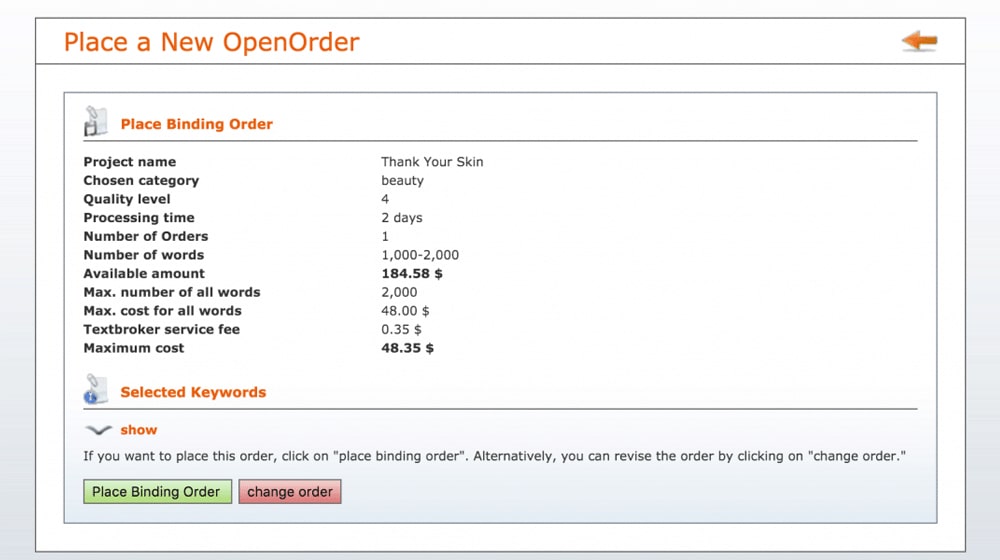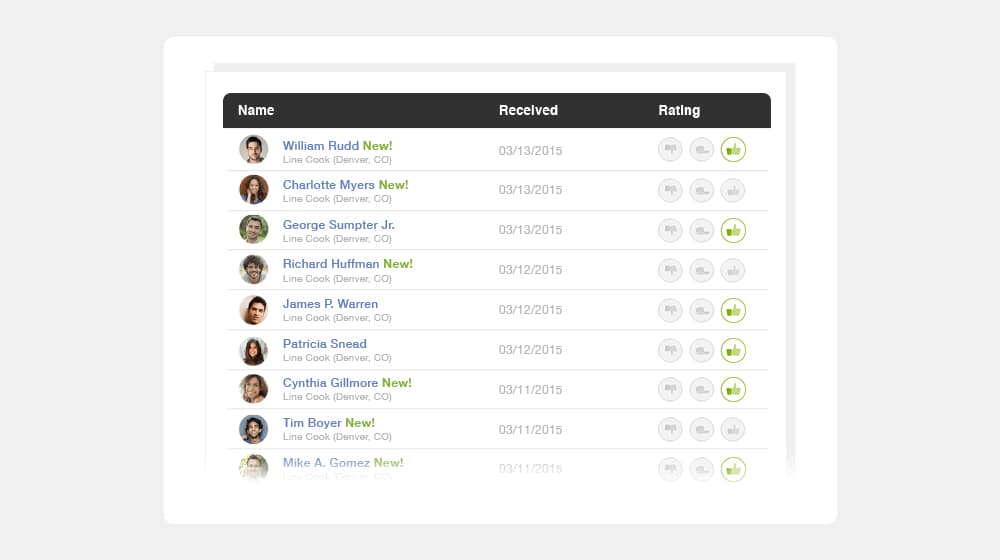Guide: How to Hire a Ghostwriter to Write for Your Blog

Do you remember back in the early 90s? There was a TV show called Ghostwriter. It was a children's mystery show, where a group of friends solved mysteries and crimes throughout the town with the help of a friendly ghost. The ghost knew more than the kids, but could only communicate with them by manipulating text around him.
Well, a ghostwriter for a blog is absolutely nothing like that. The term ghostwriter originated centuries ago, and may be even older than that. Mozart was famous for being a musical ghostwriter for wealthy patrons in the classical era. It's far from a new process, and it's not limited to writing. Andy Warhol used a similar process for producing art.
What is a Ghostwriter?
A ghostwriter, at least in terms of a blog, is just someone who writes content for you without putting their name on it as the author. They sell the content to you, and you can use it as you wish. In a way, it's exactly the opposite of working for exposure; the ghostwriter gets no exposure from the content they write, they simply make money from it.

If this sounds familiar, it's because it probably is. A lot of content I've written about hiring writers, such as from content mills, involves a ghostwriter relationship. It's very common in the blogging space, and I can guarantee you that you've read a lot of content written by ghostwriters rather than by the people who have their names attached to it. A lot of big-name business owners use ghostwriters, after all.
Ghostwriters vs. Freelancers vs. Hired Writers
So, what's the difference between a ghostwriter and a freelancer, or between a ghostwriter and a writer you hire?

In general, it comes down to three things: pay, attribution, and relationship.
- A ghostwriter generally writes for money and nothing else. They don't care about attribution, and in fact, many ghostwriters have very small or non-existent portfolios because most of the content they write is under someone else's name. Some pursue ongoing relationships with specific clients, while others are content to write whatever comes their way, no matter who is ordering it.
- A freelancer, meanwhile, can be a ghostwriter or a writer who has their name attached to the content. Freelancer simply means someone who works on a contract or gig basis, rather than on a hiring relationship. Ghostwriters are freelancers who don't attach their name to content. Other freelancers do. Freelancers who ask for attribution generally cost a little less, because they get the benefit of having their name on your site and building their portfolio pieces up.
- A hired writer, meanwhile, is an employee. Whether you have them attach their name to your content, or you hire them as an ongoing ghostwriting position, depends on your own company and relationship. Most of the time, a company hiring a writer as an actual employee will use their name as the person writing content, but that's not always the case.
The moral of the story is that, other than a ghostwriter, the definitions are very flimsy. A ghostwriter is simply someone who writes content for you without attaching their name to it or retaining the rights to it.
That's it. Everything else is bells, whistles, and slight variations in job descriptions.
The Pros of Hiring a Ghostwriter
Now let's talk about the various pros and cons of hiring a ghostwriter to produce content for you. There are a lot of both, so I'm divided this up into two sections. First, the pros.
The ghostwriter brings talent to the table. Ghostwriters are often quite talented at the actual writing aspect of their craft. So why are they ghostwriters instead of professional bloggers themselves? The self-promotion, the website development, these kinds of skills aren't part of their wheelhouse. Maybe they don't want to learn, maybe they're making plenty of money without it, who knows. They're good at what they do, but what they do is often relatively narrow.

A ghostwriter is rarely going to be a blog manager for you. Often, they don't even want to come up with the topics they write; they just write what you tell them to write. They'll write excellent, well-researched content, but they aren't going to be doing the topic ideation, keyword research, and other legwork necessary to run a blog.
You save time on writing when the ghostwriter is doing the work. The number one reason most bloggers hire ghostwriters is so they can save time and spend that time doing something else. You aren't making sales calls, growing your business, or networking when you're writing a blog post, after all. Writing can take quite a bit of time, and every hour you're spending doing the writing is an hour you could have been spending on something that further grows your business more immediately and directly.

You don't have to worry about anything the writer has written in the past. When hiring a writer who will have their name attached to your site, you want to look into what they've written in the past. You want to avoid people who have written negatively about you or people who have written problematic content, or people who have a history of being abusive or discourteous. A ghostwriter doesn't have these problems. Maybe they've written something negative about you, but you'll never know it because their name isn't attached to any of that content. Their reputation can't reflect poorly on you if no one knows who they are, right?
Ghostwriters can adapt to whatever process you want to use. Do you want to give them a keyword phrase or a title and let them go to town? Great! Do you want to have them write an outline or a draft to send to you before finalizing a project? That works too. A ghostwriter can often adapt to just about any process you want to use, to ensure that you get the best content for the best results you can.
The Cons of Hiring a Ghostwriter
Of course, the ghostwriter relationship isn't always the best choice when you're trying to get blog content written. Here are a few of the cons of hiring a ghostwriter.

Finding a good ghostwriter can be difficult. Ghostwriters by definition don't have their names attached to any content that they write, so you can't simply identify the person writing content you like and approach them. They often don't have well-optimized sites or portfolios either. It can be surprisingly difficult to find a good ghostwriter.
Ghostwriters tend to be more expensive than a writer who gets attribution. Since they aren't getting that exposure and they aren't going to line up more clients through you, they're going to need to charge you more so they can live. A ghostwriter of equivalent skill will cost more than a freelancer, though some freelancers leverage their existing reputation to charge more than they perhaps deserve. It's a widely varied industry, though, so this can be hard to pin down entirely.
Ghostwriters can express expertise you don't have. If your ghostwriter writes a post about how you're an expert in, say, fishing for salmon, they'll do it with authority. If someone gives you a call and asks you about your advice for salmon fishing, and you have no idea what to tell them, that hurts your reputation. A ghostwriter can write a well-researched and authoritative article on just about anything, but to a certain extent, you need to know what they're talking about so it doesn't come back to bite you.
If you need to switch ghostwriters, your content voice can suffer. Two different ghostwriters can have two different writing styles, and while they're both good, the shift between them can be jarring if you're publishing their content under one name. Some bloggers get around this by using fake names for contributors to their site, but that can have its own set of problems.
Some people have a negative opinion of ghostwriting as a practice. While in an ideal world, no one will ever know you're hiring ghostwriters, it can still come out. In some cases, it can even hurt your reputation. Will it be devastating? Probably not. Will it be a hassle? Probably.
Content Rights and Ownership
One thing that people often question with ghostwriters is who owns the rights and ownership of content in the business relationship.

With a ghostwriter, it's generally pretty simple. The ghostwriter provides you with the content, and you provide them with money. You're buying what is generally known as a "full rights" license to the content. That is, it becomes yours; you can edit it, you can publish it, you can attach your name to it, and generally treat it as your own. The ghostwriter can't claim the content as their own, because they sold the rights to you.
Now, this isn't necessarily the default. You may need to explicitly draw up a contract for both you and the ghostwriter to sign to make this explicit. Without the contract, the writer may still own the copyright to the content they wrote, even if you paid to use it. This can be quite a tricky situation to navigate if it comes down to it, and may end up involving legal action. Better, instead, to draw up the contract.
Luckily, a contract doesn't need to be too long or difficult to create. Here's an example.
Step by Step Hiring a Ghostwriter
Hiring a ghostwriter can be a tricky process primarily because of one detail mentioned up above; they can be hard to find! A ghostwriter isn't exactly advertising themselves, most of the time, so you need to find them before you can hire them.
Step 1: Find the ghostwriter. You can do this through a variety of different channels. You can visit content mills and try to poach writers, though they will be resistant because the mill rules generally forbid it, and some of them even censor communications between writers and clients that include contact information. You can ask other bloggers if they've ever used a ghostwriter, and ask for referrals. You can make a post on your site, on freelance hubs, on sites like ProBlogger, or even just on Craigslist, and let them come to you. However you do it, you need to build up a pool of candidates to be your ghostwriter.
Step 2: Interview your potential ghostwriters. You'll want to ask for samples, and possibly test the writer to see if they can meet the level of skill you want.

Step 3: Work with the ghostwriter for a test or two. You want to see if the writer can perform up to your standards, so give them an assignment. I 100% recommend treating this as a standard paid assignment. Make a verbal agreement that you're buying the content regardless of the quality, so they know they're getting paid and that you're not just taking the content and ghosting them.
If the ghostwriter produces high-quality content, without plagiarism, on deadline, and they're up for working with you on an ongoing basis, you can proceed to the next step.
Step 4: Draw up a contract. As mentioned up above, by default, the person who writes a piece of content owns the copyright to that content. You need to create a contract for you and the writer to sign, that delivers the content and the rights to the content to you. It should, of course, also guarantee payment for the writer, and recourse if no payment is delivered.
Step 5: Maintain a long and fruitful relationship with your ghostwriter. In an ideal situation, you and the writer will grow together. You can pay them more for better content over time, and they can produce more and better content as they grow more familiar with you, your business, and your industry.
Of course, it's always possible that you'll grow apart and the relationship will drop. You'll need to hire a new writer at that point and make the choice between keeping them as a ghostwriter – with the corresponding shift in voice – or hire a writer with attribution. The choice is yours.










February 04, 2021
What are your thoughts on the ethics of ghostwriting?
February 05, 2021
Hey Rodney!
Oooh, tough question.
I think in and of itself, ghostwriting is not unethical.
If an article is truly ghostwritten with zero input from the "author", I can see that being problematic.
For example, if somebody asks you about an article you "wrote" and you have no idea of how to answer questions about it, that's not a good thing.
Most of the people I know who have articles ghostwritten for them give the writer a complete breakdown of what they want to talk about. They mention points they want to cover, articles they want to cite and the general opinion and direction of the article.
The opinion, direction, topic, and sources are all still unique to the person ordering the article - they simply hired somebody to help them expand on those points and fill in the blanks. I don't personally see a problem with that.
Just my two cents - it's a complicated subject. Thanks for asking such a tough question!
May 29, 2022
This is a great take on a complicated topic, James. I fully agree.
June 03, 2022
Thanks, Patrick! Cheers.
December 12, 2021
Given all the pros and cons you've mentioned about hiring a ghost writer, can you recommend working with one if the person is just starting out her site?
December 22, 2021
Hi Patricia!
I don't see why not. The biggest mistake people make when they hire a ghostwriter is they take their hands off the steering wheel completely.
As long as you're actively directing, reading, and editing your content, it's hard to go wrong.
You start running into trouble when things are published under your name and you haven't thoroughly read those articles from start to finish.
Good luck!
February 20, 2022
Great explanation
February 21, 2022
Thank you, Amiral!
September 20, 2022
Hi James!
Thanks for a great article, this is the second time I've come back to it, and this is just the occasion to thank you.
I can say that the most important thing is to check the author for quality and reliability. In a large company this is handled by a whole department, which selects those who want to ghostwrite academic papers for other people. The author must have a scientific degree, as well as succeed in the test assignment.
It's a pretty big thing now, that ghostwriters write not only research papers, but even CVs and business plans for large companies.
October 07, 2022
Wow, thanks Anke! I appreciate the kind words and sharing that advice with everyone.